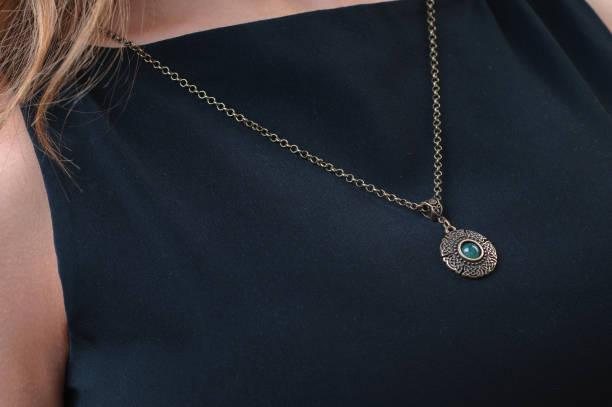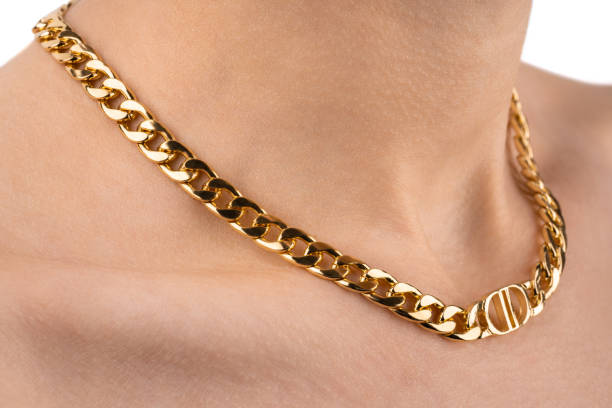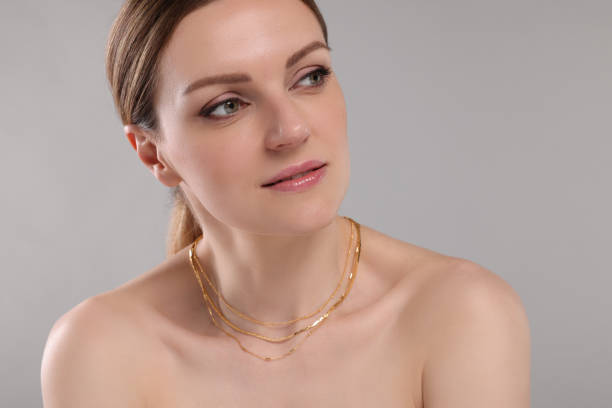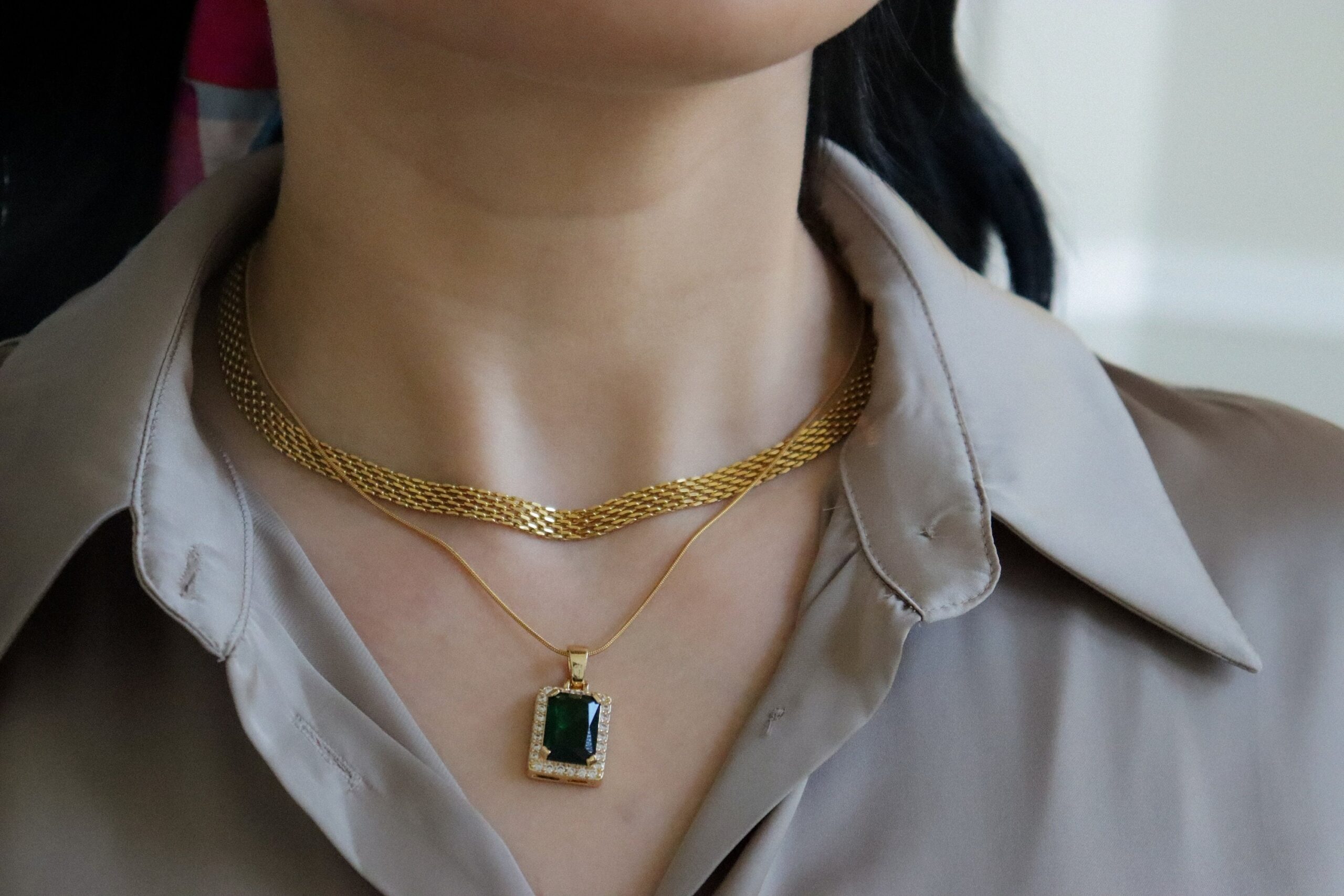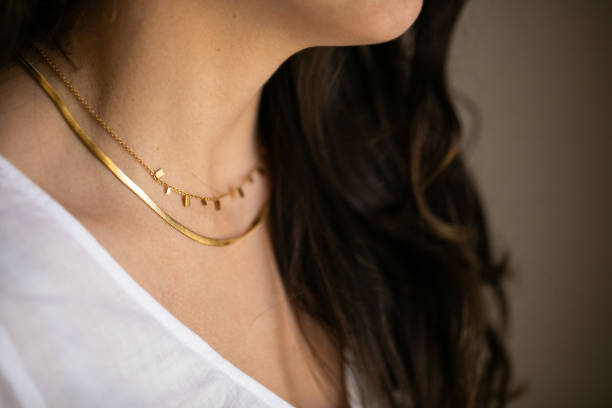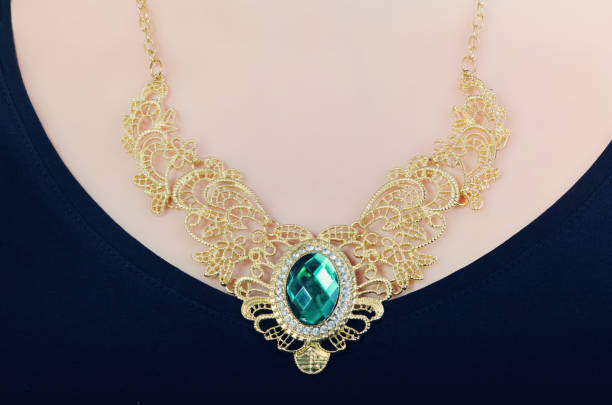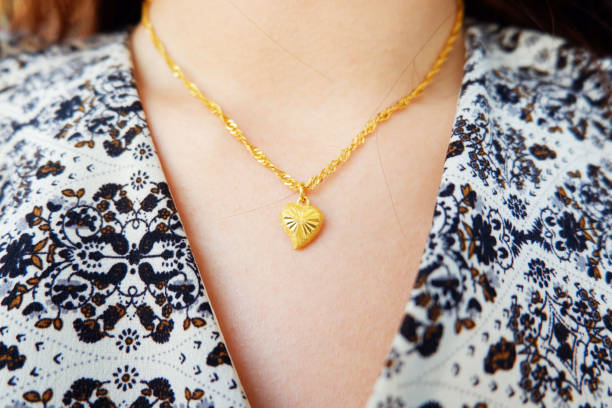Golden Truth: Identifying Genuine 18k Gold Jewelry
Have you ever come across an extravagant 18k gold necklace womens dangles from a display, and you wonder if it’s truly the real deal? Spotting genuine 18k gold jewelry can feel like searching for a needle in a haystack, but don’t fret, I’ve got your back! This post is packed with golden nuggets of wisdom to help you sift through the good, the bad, and the glittery impostors.
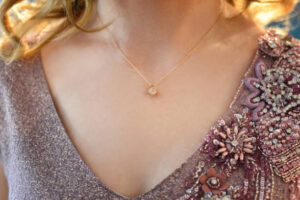
First thing’s first, let’s talk about the stamp. Authentic 18k gold pieces are usually stamped with “18k” or “750”, signifying 75% gold content. Keep in mind, though, not all authentic pieces bear a stamp especially if they’re vintage. When you’re staring at that glistening piece behind the glass, ask the jeweler if you can take a closer look at the hallmark. If they hesitate, it might be time to walk away.
Weight is another telltale sign of real gold. Gold is dense and heavy. If a piece feels alarmingly light, that’s a red flag. It’s as if you picked up a doughnut but it felt like a cotton ball – that doesn’t add up!
Have you heard of the magnet test? Grab a strong magnet and see if the jewelry reacts. Gold is not magnetic. So if that 18k gold pendant you’ve been eyeing clings to the magnet like white on rice, it’s probably a faker. But be warned, other metals aren’t magnetic either, so this test isn’t foolproof.
Let’s get a bit chemical, shall we? Real 18k gold is impervious to most corrosion. A simple acid test can reveal a wealth of information. Jewelers often use nitric acid to test the authenticity of gold. A drop on genuine gold will have no reaction. But fake gold? It’ll fizz like vinegar on baking soda! However, I wouldn’t recommend trying this at home. Leave the acid for the experts.
Here’s a simple trick: the bite test. You might’ve seen Olympians bite their medals. Though a bit unrefined, biting down on gold can reveal its purity (18k gold is fairly soft). Just remember, your teeth aren’t tools, and gold isn’t a snack.
Avoid tarnished pieces like a plague. Gold that’s 18k or purer should not tarnish. Any discoloration or fading is a dead giveaway of inferior metals creeping into the mix. Sure, grandma’s old ring might have a bit of grime, but once cleaned, it should shine like Midas himself touched it!
If it sounds too good to be true, it probably is. Let’s face it, real 18k gold jewelry isn’t cheap. If someone offers you a “genuine” 18k gold bracelet for the price of a latte, you might want to put on your detective hat. Such deals might sparkle, but they’re usually fool’s gold.
Talk to professionals. Have that 18k gold piece appraised. A keen-eyed jeweler can often sniff out inconsistencies quicker than you can say “gold digger”. Plus, they’ve got all sorts of fancy equipment like spectrometers that can confirm the gold’s purity.
But what if you’re buying online? Pictures can be deceiving. Check out reviews, ratings, and seller history. If the store has a slew of happy customers raving about their purchases, you’re likely in good hands. But if the reviews read like a horror story, run to the hills!
10 Clever Scams to Watch Out for When Buying an 18k Gold Necklace
Buying an 18k gold necklace womens can be like walking through a minefield. Glittering jewelry doesn’t always come without risks. Scammers are smarter and craftier than ever, taking advantage of anyone and everyone. Let’s dive into some common scams and how to dodge them like a pro.
First, watch out for fake gold. It happens more often than you’d believe. Some sketchy vendors mix inferior metals to trick you. Ever thought you were buying an 18k gold necklace only to end up with gold-plated junk? Yeah, not fun. Always check for a hallmark or get it tested. A legitimate seller won’t bat an eye if you want authentication.
Next, counterfeit certificates are a sneaky ploy. You know those shiny, important-looking papers? Fake as Monopoly money sometimes. Scammers dish out phony certificates to ‘legitimize’ their junk. How do you side-step this trap? Buy from well-known, reputed jewelers. A famous brand is less likely to rip you off. Remember, a reputable name stands behind its products.
Also, there’s the ever-deceptive switcheroo tactic. Imagine this – you select a beautiful piece, pay for it, and receive a different, cheaper necklace. Horror story, right? Always inspect your purchase before leaving the store. No peeking through rose-tinted glasses here. If buying online, verify reviews and inspect the final product upon arrival.
Then there’s the classic ‘too good to be true’ deal. Eighty percent off an 18k gold necklace? Think twice, my friend. Scammers lure with unbeatable prices, drawing you into their web. Quality comes with a price. If it sounds too good to be true, it probably is. Trust your gut and walk away from suspiciously cheap offers.
Let’s not forget about the plastic fantastic. Some fraudsters have perfected the art of making gold-plated plastic pass off as solid gold. Crazy, isn’t it? This one’s tough. Be hyper-vigilant. Hold the necklace, feel its weight. Real gold is heavier than you’d expect. And, scratching a corner subtly can expose the truth beneath.
Here’s another pitfall: the ‘Heirloom Scam’. A dodgy seller convincing you the piece belonged to some royalty? Pouring syrupy stories about its vintage and value? Big red flag. Authentic vintage pieces come with verifiable history. Trust facts, not fabulous tales.
In-store scams aren’t the only threat. Enter the cyber con artists. Online marketplaces can be shady places. Reviews can be faked, images doctored. So, it’s wise to shop from reputable websites. A digital footprint can speak volumes. Check for customer reviews, and return policies, and don’t rush.
Furthermore, be cautious about the alloy ruse. They sell you a gold necklace mixed with too much alloy, making it worth much less. How to spot this? Any reputable seller should list exact gold content. Don’t hesitate to ask questions. Knowledge is your shield here.
Let’s touch upon overpricing. Some sellers intentionally mark up prices, banking on your ignorance. You’re paying way above the market rate. Ouch. Research current gold rates before shopping. Have a ballpark figure in mind.
